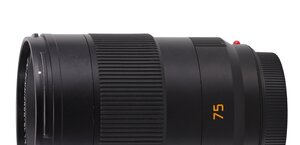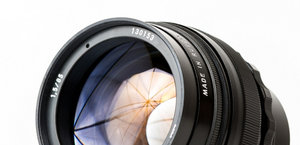Samsung NX 20 mm f/2.8
8. Vignetting

Those photos don’t suggest that this aberration is huge and our measurements confirm it. In the case of JPEG files, at the maximum relative aperture, the brightness loss in the frame corners amounts to just 13% (-0.41 EV). The aberration decreases to 11% (-0.32 EV) by f/4.0 but further stopping down doesn’t make it lower. In the case of RAW files the results we got were by 3-4% higher which stems from a wider field of view (not distortion corrected), registered for that type of files.
Please Support UsIf you enjoy our reviews and articles, and you want us to continue our work please, support our website by donating through PayPal. The funds are going to be used for paying our editorial team, renting servers, and equipping our testing studio; only that way we will be able to continue providing you interesting content for free. |
- - - - - - - - - - - - - - - - - - - - - - - - - - - - - - - - - - - - - - - - - - - - - - - -
For a ‘pancake‘ lens those results are surprisingly and suspiciously low. Remembering the rather non-physical performance of the Samsung 2.4/16, in which case the vignetting by f/8.0 was higher than near the maximum relative aperture, you can suspect that also the Samsung 2.8/20, without the knowledge of its user, corrects the vignetting automatically.
On the other hand you should remind yourself the photos from the previous chapter, showing defocused images of light (so the ones rendering active surface which gathers light in a lens) - that one showing the corner by f/2.8 didn’t look very truncated. Its deformation from the circular shape was only 12-13% (in the sense of the area difference) which is in perfect accordance with the value we got from the direct vignetting results.






